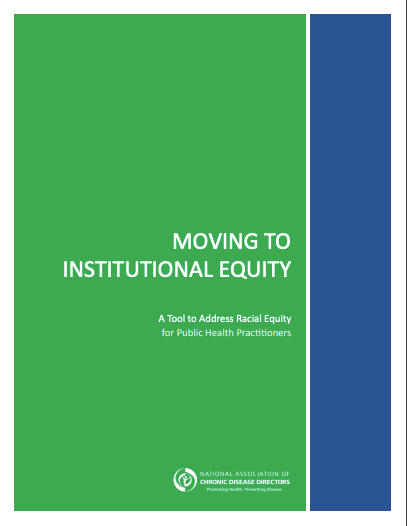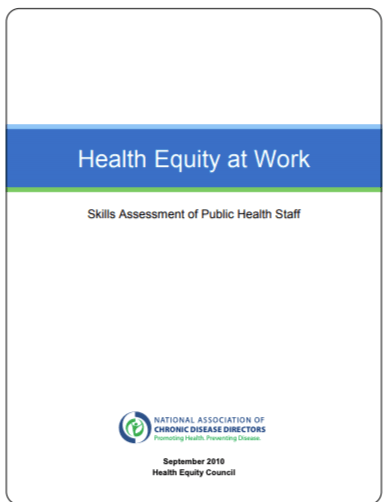FOR IMMEDIATE RELEASE
CONTACT: Paige Rohe, 404-924-8295
ATLANTA (June 12, 2020) – As part of the National Association of Chronic Disease Directors’ (NACDD) continuing work to be an antiracist public health organization, the Association announced today that it will distribute nine mini-grants of $25,000 to advance health equity in the United States.
The grants are being offered to select states that have participated in a pilot project to address systemic racism in their State Health Departments. The grantees will receive the new funding for the application of either of NACDD’s nationally recognized tools,Moving to Institutional Equity: A Tool to Address Racial Equity for Public Health Practitioners or the Health Equity at Work Assessment.
“Racism is deeply ingrained within the structures of our institutions and within our communities,” said John W. Robitscher, MPH, NACDD’s CEO. “NACDD continues to be a proactive part of the work our country is doing to promote justice and health equity, and these grants are just one way we seek to contribute to a better future for all.”
Earlier this month, the Association issued a statement denouncing racism as a public health crisis and calling on funders and other public health organizations to lend greater support for antiracist programs and activities.
NACDD has been working for more than 15 years through its Health Equity Council, currently led by Council Chair Louise Square of the New York State Department of Health. The Council counters the root causes of unintentional bias and institutional racism as it exists in State Health Departments. The Association conducts this work alongside multi-year efforts to reduce the effects of the social determinants of health, more recently through a Board President’s Challenge that began in 2018 and continues today.
“Over the years, the Council has worked with states to develop several comprehensive approaches to advance health equity,” said Robyn Taylor, MBA, NACDD Health Equity Consultant, who is managing the mini-grants. “But it didn’t take long to realize that no matter which social determinant the Council focused on, race and racism are the greatest predictors of health in this country,” said Taylor.
“Institutional and internalized white privilege and racism have hindered our ability to achieve health, social, and economic equity,” said Robitscher.
“Antiracist action, acknowledgment, leadership, action, and practice can help to ensure that visions for equity are not compromised by organizational internal practices or the lack of knowledge about how to address health inequities and promote health equity,” he said.
NACDD will announce the grantees for this invitation-only opportunity in July 2020, with work expecting to be completed by the end of February 2021.
|


